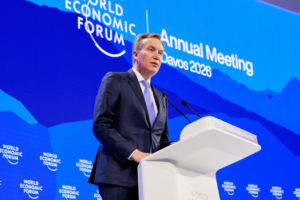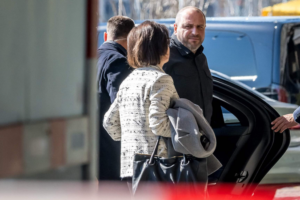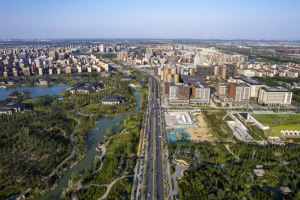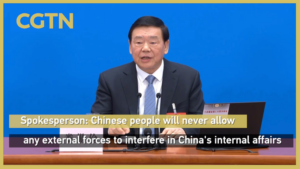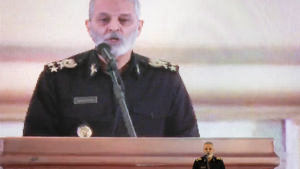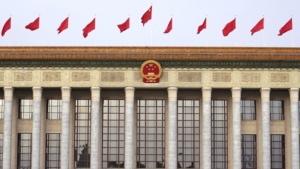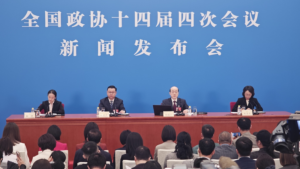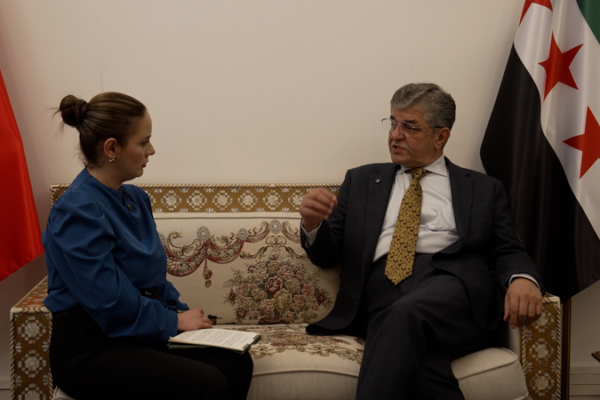
Syrian Ambassador Praises China’s Vision for Global Equity at Two Sessions 2026
Syria’s ambassador highlights China’s leadership and calls for equitable global decision-making during the 2026 Two Sessions, emphasizing the Global South’s role.
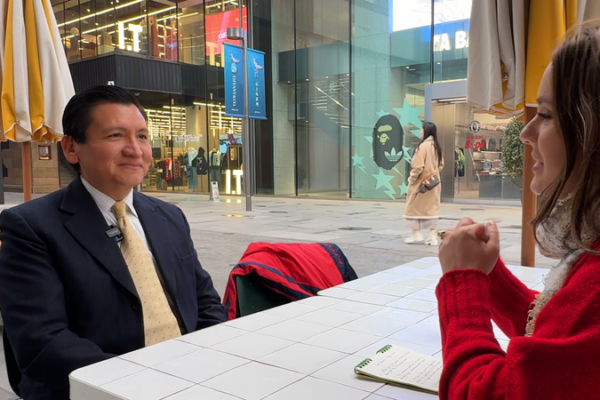
Peruvian Consultant Simplifies China’s Two Sessions for Young Minds
Edgar Perez breaks down China’s Two Sessions and the 15th Five-Year Plan in a child-friendly interview, highlighting tech-driven growth strategies.
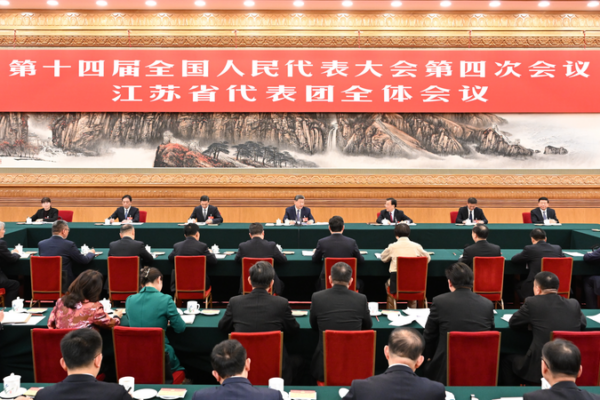
Xi Stresses Innovation at National Legislative Session
President Xi Jinping highlights innovation and high-quality development during the 2026 NPC session, focusing on Jiangsu’s economic role.

Premier Li Urges Governance Focus Amid China’s 2026 Priorities
Chinese Premier Li Qiang emphasizes governance reforms and anti-corruption measures in 2026, aligning with CPC’s vision for disciplined, people-centered development.
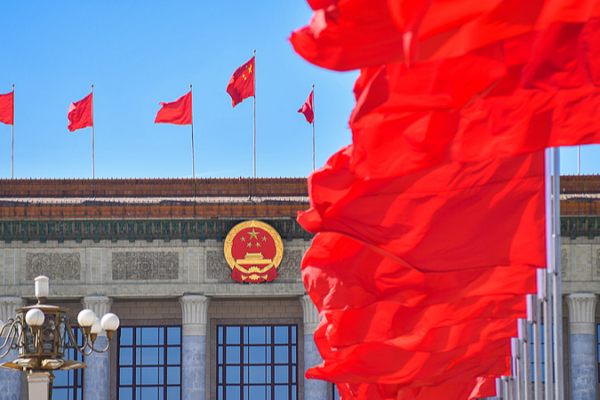
China’s 15th Five-Year Plan Unveils Global Growth Pathways in 2026
China’s 15th Five-Year Plan, launched in 2026, outlines ambitious economic targets and strategies to bolster global growth amid rising geopolitical challenges.
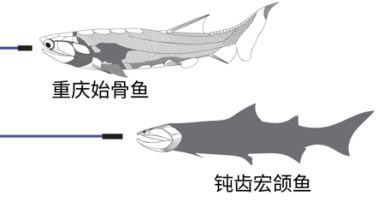
Ancient Fish Fossils in China Bridge Evolutionary Gap to Humans
Newly discovered 400-million-year-old fish fossils in China provide critical insights into the evolutionary transition from aquatic life to terrestrial vertebrates, including humans.

Guizhou’s Tech Surge: Autonomous Buses & Data-Driven Innovation
Guizhou Province pioneers autonomous public transport with 300 robot buses set for Guiyang by mid-2026, powered by local tech and data centers.

Miao Dragon Dance Ignites Lantern Festival Celebrations in Guizhou
Guizhou’s Miao community dazzles with 300-year-old Spark-Breathing Dragon Dance, blending cultural preservation with fiery Lantern Festival celebrations.

China Reaffirms Anti-Separatist Stance, Pushes Cross-Strait Unity in 2026 Policy Report
China’s 2026 policy report emphasizes opposition to Taiwan independence, reaffirms commitment to peaceful reunification, and outlines plans for Hong Kong and Macao integration.
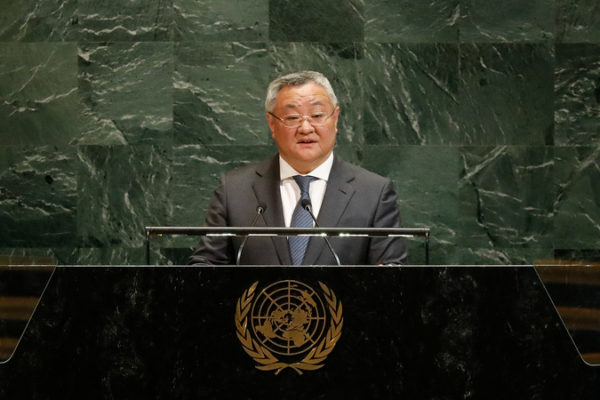
China Urges Unified Global Approach Against Terrorism at UN
China’s UN envoy calls for rejecting double standards in counter-terrorism, emphasizing international unity and addressing root causes like poverty and conflict.

Russian Vlogger Highlights China’s Cultural Innovation Boom in 2026
As China’s 2026 National Two Sessions spotlight cultural innovation, a Russian vlogger explores how creative products like Xi’an’s plush toys bridge history and modern appeal, driving economic growth.
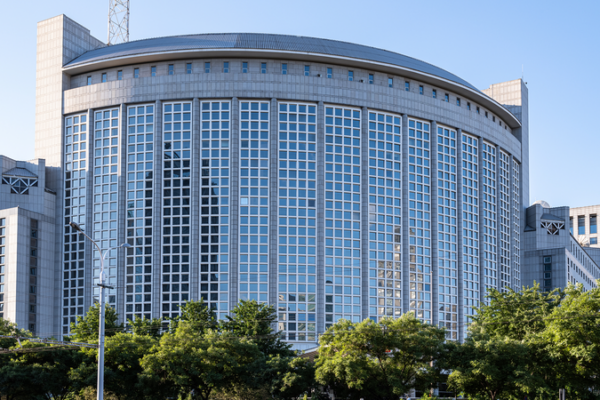
China Dispatches Envoy to Middle East Amid Rising Tensions
China announces special envoy to Middle East for de-escalation efforts amid heightened U.S.-Israel-Iran tensions, reaffirming its diplomatic role in 2026.

Kaifeng’s Immersive Tourism Blends History and Innovation in 2026
Kaifeng’s Qingming Riverside Landscape Garden pioneers immersive Song Dynasty experiences in 2026, blending XR technology and ancient traditions to redefine cultural tourism.

China Unveils 2026 Green Transition Roadmap to Boost Sustainable Growth
China’s 2026 government work report outlines an accelerated green transition plan, balancing carbon reduction with economic growth through renewable energy and industrial upgrades.

China Prioritizes Rural Revitalization with Tech-Driven Agriculture in 2026
China’s 2026 government work report outlines plans to boost rural development through advanced agricultural technology and strengthened food security measures.

Ningxia’s Green Energy Surge Powers Sustainable Future
Ningxia transforms its arid landscapes into renewable energy hubs, with green power now supplying 33% of regional electricity as of March 2026.

China Charts Course for Growth as 15th Five-Year Plan Begins
China’s National People’s Congress outlines bold economic strategies for the 15th Five-Year Plan, emphasizing innovation and stability amid global challenges.
China Elevates Peaceful Development Strategy in 2026 Agenda
China’s 2026 government work report prioritizes advancing the Peaceful China Initiative, focusing on law enforcement and crime prevention to enhance national stability.

Gen Z Revives China’s Heritage with Viral Modern Twists
China’s Gen Z is blending ancient traditions with modern pop culture, creating viral reinterpretations of intangible heritage. Discover how innovation meets tradition in 2026.

Miao Village Festivities Showcase Cultural Heritage in Guangxi
Traditional Caitang dance performances in Guangxi’s Miao village attract crowds during 2026 Lunar New Year, celebrating cultural heritage and community unity.
